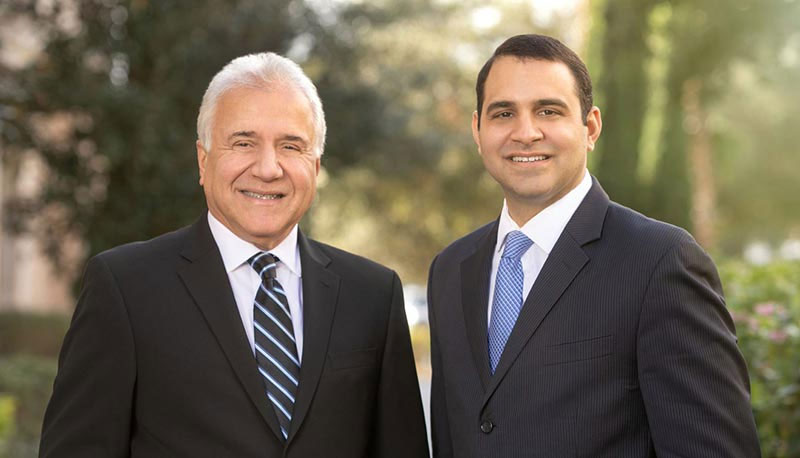When many millennials came of age during the unprecedented financial crisis of 2007-2008, it left an enduring impact on the financial habits they developed and the way that they view financial independence.
Indeed, the economic landscape that millennials today now raise their own families in is very different than even just a few years ago and so the strategy for wealth building and retirement is different as well. Garrett Boorojian, a millennial himself as well as a professional in the financial industry, shared unique viewpoints with me on how millennial financial habits and wellbeing has evolved from what prior generations practiced. As the Managing Partner of WaveCapital Partners, an investment banking consultancy, Garrett’s experience as a millennial gives him a unique lens that he has been able to bring to both corporate finance as well as his personal finances. I caught up with him to glean insight into how millennial financial habits have evolved.

Q: What are some of the unique economic headwinds that millennials face in building wealth that are more exacerbated than previous generations?
A: Millennials, too, have had to live through the economic collapse from the COVID-19 pandemic. Typically, millennials either have one or more of the following headwinds: student debt from the Great Recession period to present day, credit card debt, mortgage debt, and / or medical debt. High inflation has led to higher costs of living in America’s major metropolitan areas. The costs of food, gas, housing (new-build and rental) have become at times unbearable for millennials, including the ones who have skilled and high-paying jobs in the six-figure ranges. Money doesn’t stretch as much compared to previous decades. If millennials set aside some of their incomes each year for their retirement years, they’ll be in much better financial situations by the time they’re in their fifties and sixties.
Q: Is there a shift in mindset among the millennial generation about wealth building overall and the motivation behind it?
A: A lot of millennials’ mindsets are geared toward not wanting their lives to follow similar paths as the lives of their parents’ (‘baby boomers’) that were severely affected by the Great Recession. A lot of wealth and assets were quickly lost in a short amount of time. Many millennials who were still in college at the time watched their parents struggle financially and psychologically from the Recession.
During the COVID-19 pandemic, it’s been a tumultuous 18 months of seeing and hearing about countless small businesses shutting down across the country. In these challenging and unprecedented times, millennials have had to find motivation to reinvent and think entrepreneurially with hopes to positively impact their lives and others from their entrepreneurial creativity.
Early on in the pandemic, when wealth had diminished because of some circumstances, wealth was able to build also due to those same instances. For example, while restaurants, bars, hotels and airlines were practically non-existent during 2020’s quarantine, the grocery stores’ food, sanitizers, paper and cleaning products’ inventories were in high-demand.
Q: What are some of the financial habits that are most important for millennials to take into consideration?
A: To become financially-sound, millennials should make daily or weekly habits of conducting research on what are smart investments today. For example, income-producing rental properties are low-risk, consistent, sources of revenue-generating income. In real estate, millennials could delve into this space by working toward acquiring one unit or two-to-four units to rent to the public. Being landlords would teach millennials how to be responsible owners who would have to maintain properties at acceptable professional standards. Millennials should rent to qualified and credit-worthy renters who would be able to put down deposits during their times of renting the units.
Millennials should also hire financial advisors who would be able to educate them on all their highly-recommended options that are available to potentially build wealth. Also, millennials should rely on their advisers to have great understanding of their needs as millennials because each millennial client has financial goals and milestones that are unique to him or her (and his or her family).
The stock market is riskier than real estate investments, but potentially could be a more rewarding avenue, in pursuit to build wealth. However, like the real estate market, millennials should educate themselves how the stock market works and its risks before getting involved.
Q: Do you think the path to wealth is different for Gen Y and Z than it was previously?
A: Yes, the path to wealth is different because America now has a multi-faceted, technological and fast-paced economy with so many professional areas in the public and private sectors. Whether for full-time or part-time employment, millennials should explore all opportunities that are hourly-paying jobs, commission-based jobs, salary-based jobs, and part salary-based and part commission-based jobs. Jobs typically include full benefits’, limited benefits’ or no benefits’ packages.
Because America has a robust and diverse economy, income earners across the spectrum have multiple ways to potentially create wealth for themselves and their families throughout different stages of their lives. A well-rounded education is vital, as well as applicable real-world experience. If millennials are unable to afford enrolling in postgraduate academic programs, they should consider getting professional certifications and designations. More education would only help complement millennials’ capabilities to be relationship builders through their professional and social networks. Millennials and the younger generation (Generation Z) should know that building wealth requires building quality relationships in various successful and credible professional and social spheres.

